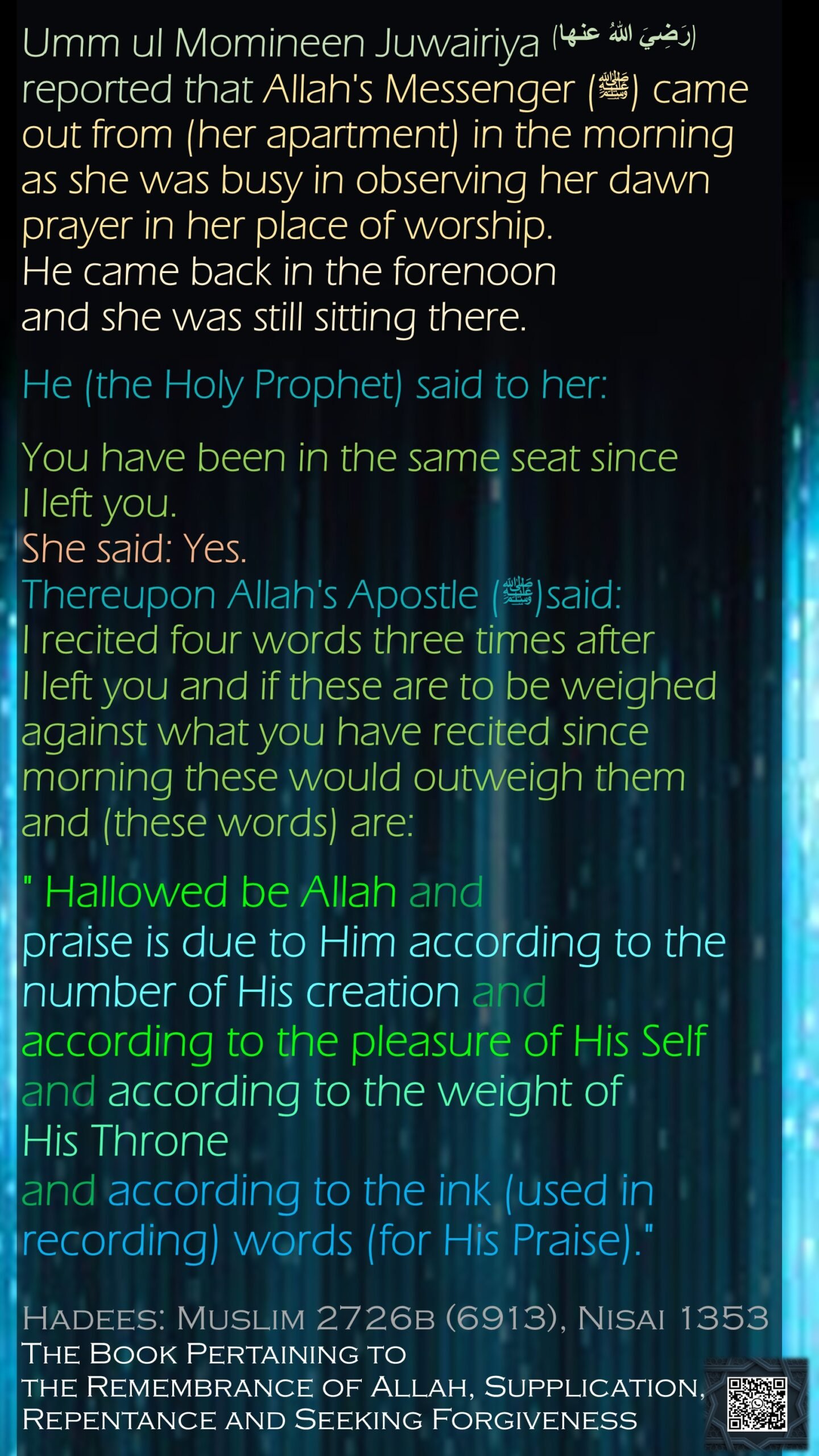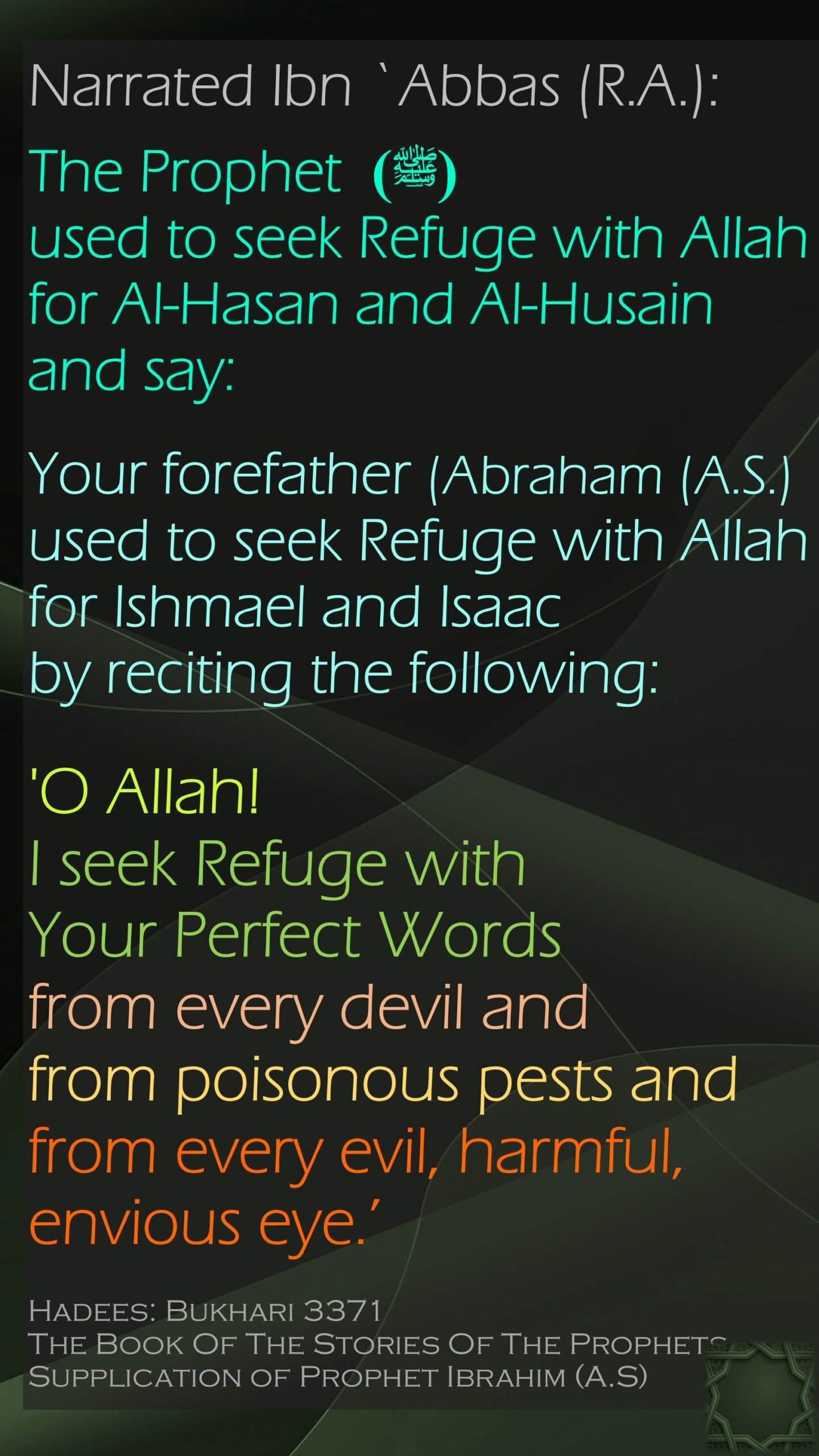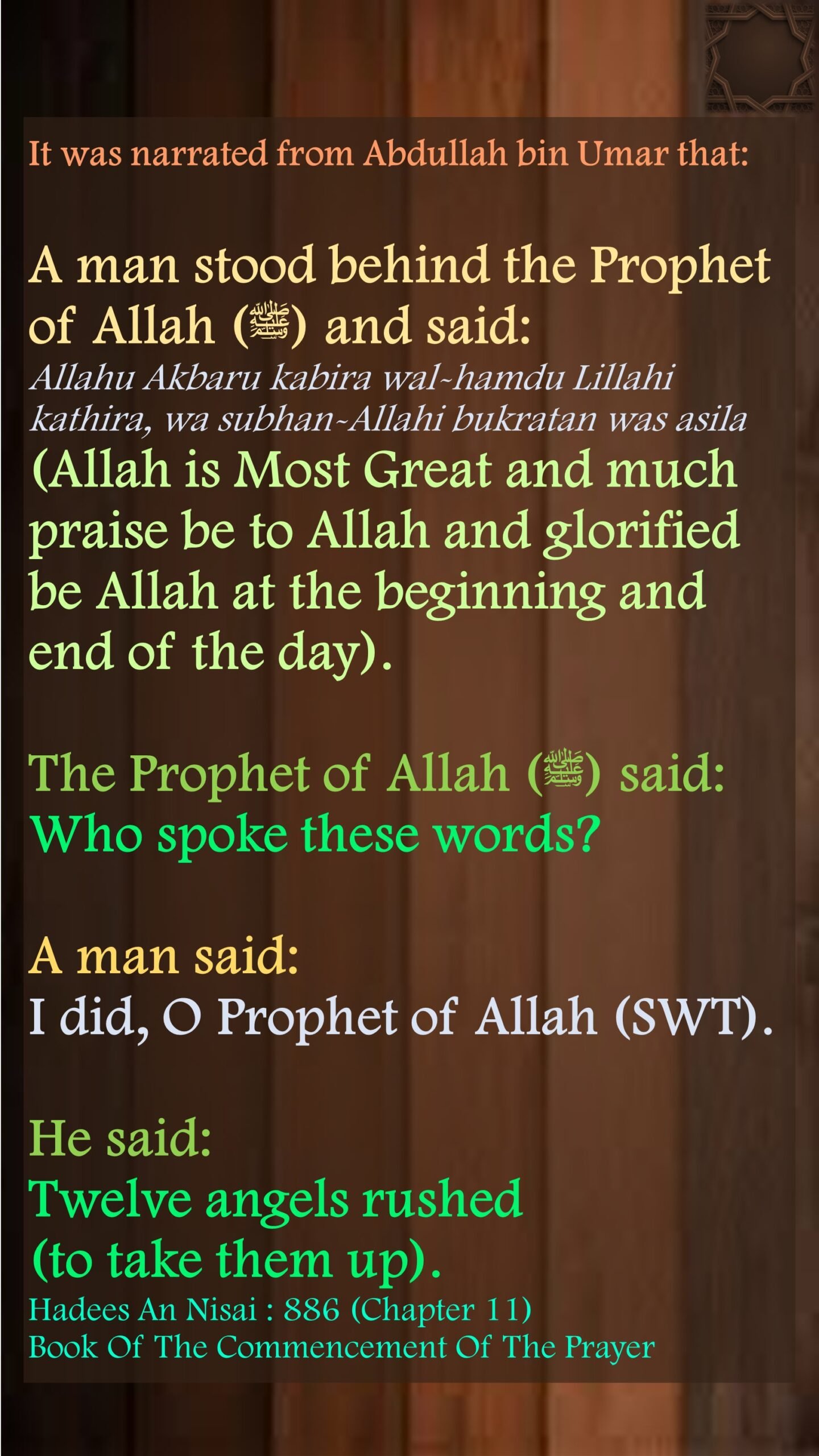Skip to Content
Tag Archives: words
- Home -
- Posts tagged "words"
21
Oct, 2025
Hadees, Quran
1353, 2726, 2726B, 6913, Allah, azkaar, creation, daily, dawn, hadees, Hallowed be Allah, ink, inspirations, islam, islamic, Javeria, Juwairiya, morning, Muhammad, nisai, pleasure, praise, prayer, priseworthy, SubhanAllah, supplication, throne, weight, words, zikr
5
Jul, 2025
Islam, Quran
Allah, appeal, ar-Rad, ayat, commit, daily, disbeliever, earth, empty, falsehood, gods, inform, inspirations, islam, islamic, know, knowledge, Muhammad, name, no guide, pagan, path, quran, Soul, straight, stray, Surah, thunder, turn away, vigilant, words, worship
29
Dec, 2024
Hadees, Islam
3371, Abraham, Allah, authentic, Bukkhari, daily, devil, dua, envy, evil, evil eye, eye, hadees, hadith, harmful, hasan, hasrmful, Husain, Ibrahim, inspirations, Ishaq, islam, ismael, Muhammad, perfect, protection, quran, recite, reference, Rukyah, supplication, words
15
Mar, 2023
Hadees, Islam
Akbar, Allah, angles, aseela, beginning, bukratan, daily, end, Glorify, inspirations, islam, islamic, Kabir, Kaseera, Kathera, Muhammad, Prophet, SAWW, twelve, wa, words
10
May, 2022
Islam, Quran
Allah, ayat, bare, believe, Chapter 2, charity, daily, day, disbelievers, generosity, guide, hard, hurtful, inspirations, islam, islamic, judgement, last, not, quran, reminder, reward, rockssoil, show off, stone, Surah, unable, Verse 264, washed, waste, wealth, words
9
May, 2022
Islam, Quran
002, 263, Al-Baqarah, Allah, ayat, better, Chapter 2, charity, daily, forgiveness, gold, golden verse, injury, inspirations, islam, islamic, Kind, Most Forbearing, quran, self-Sufficient, The Cow, to follow, words
8
May, 2022
Islam, Quran
Allah, ayat, cause, Chapter 2, charity, daily, fear, hurtful, inspirations, islam, islamic, Lord, nogrieve, quran, reminders, reward, Surah, Verse 262, words







